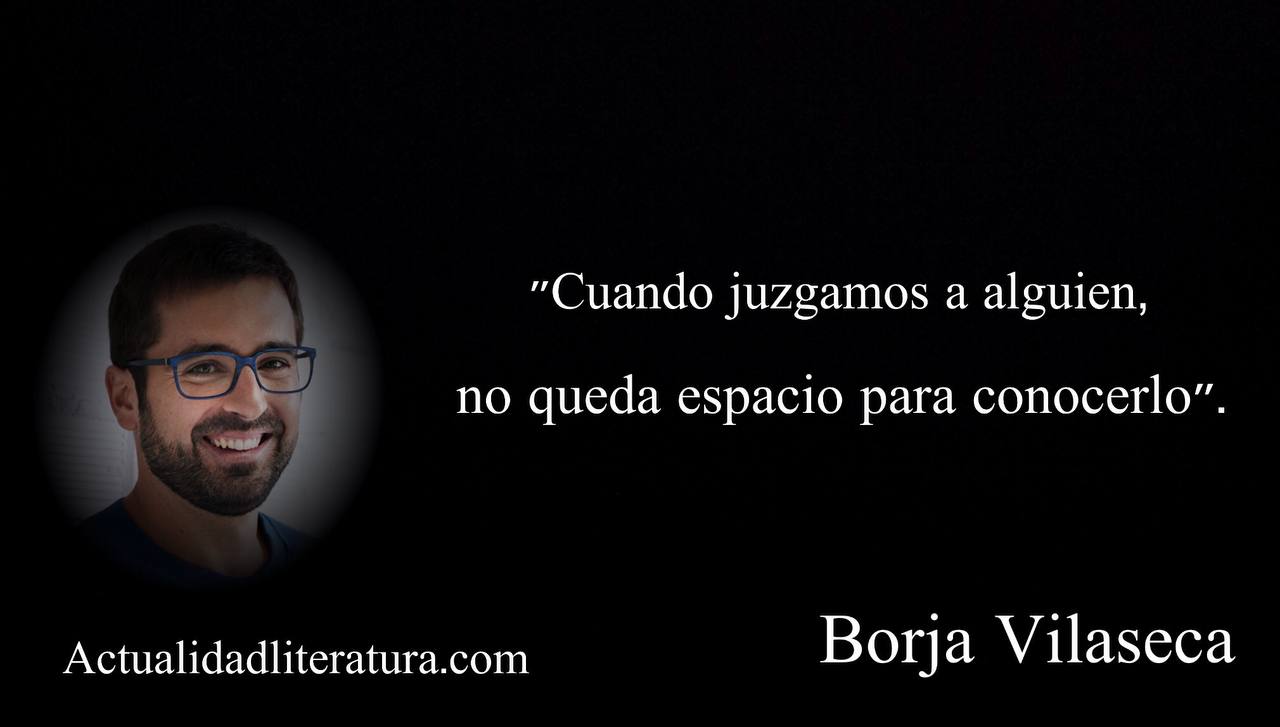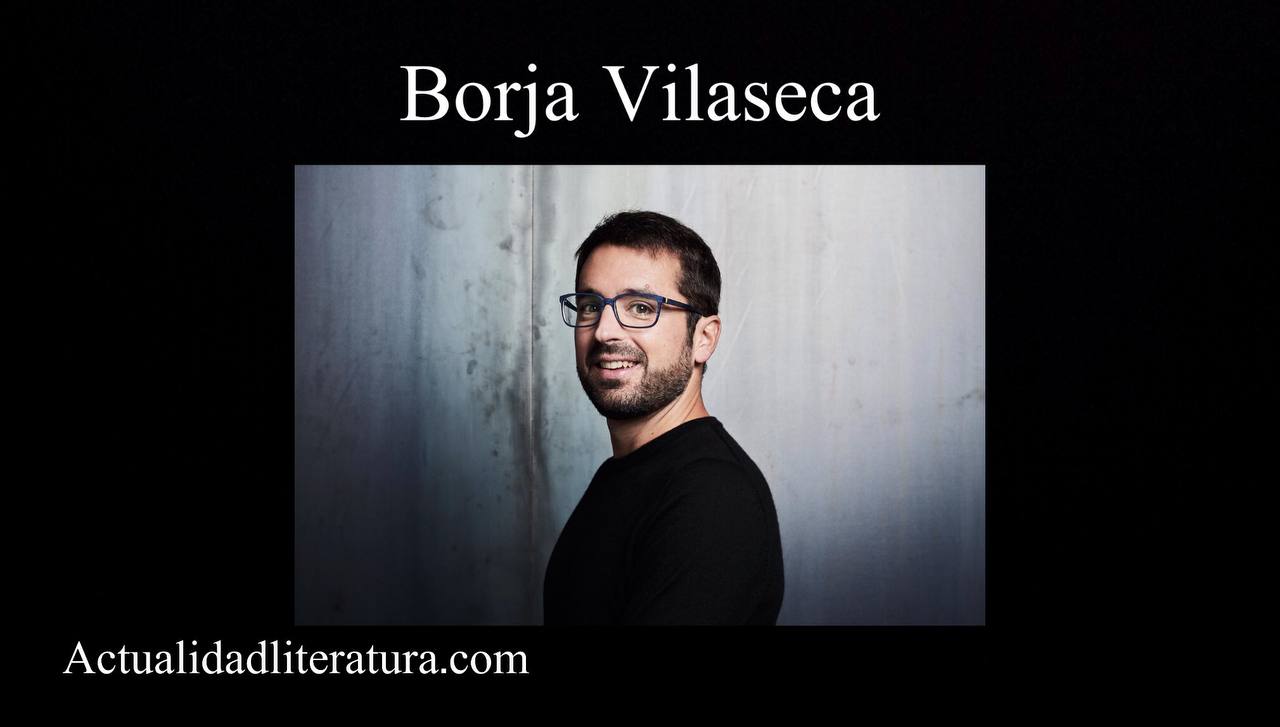
Borja Vilaseca phrase
The Linkedin profile of the journalist, writer and social entrepreneur Borja Vilaseca shows the phrase "conscience agitator" (to define himself). Certainly, the native of Barcelona has dedicated himself —among other activities— to the elaboration of books on self-discovery, personal growth and organizational behavior.
In addition, Vilaseca is the founder of the Master's Degree in Personal Development and Leadership, a chair he directed at the University of Barcelona between 2009 and 2016. Today, he teaches that course at his own institution and has expanded the project to Madrid and Valencia. Additionally, the Catalan professor has created La Akademia, an emotional and financial education initiative among young people.
Synopsis of Borja Vilaseca's books
Delighted to meet me (2008)
The book explains the concept and application of an Enneagram, a tool with proven efficiency for people's self-knowledge. It contains a series of indications referring to the human condition which are very useful for exploring the determining factors and consequences of personality. Such instructions always point towards the emotional intelligence of the reader.
The Spanish author is emphatic in pointing out the relevance of internal recognition as a fundamental step in improving interpersonal relationships. In this sense, Vilaseca proposes the application of the nine mental models of the Enneagram. Because? Well, these patterns provide the reader with tools that allow him to take over his mind and control his thoughts.
The little prince puts on his tie (2010)
The core of the text is based on the legendary tale by Saint-Exupéry in combination with a study carried out by the Catalan author in 2002. The research in question focused on the set of reforms —based mainly on the commitment to personal development— carried out by a consultant. The result for this consulting company was a resounding success.
For this reason, Vilaseca set out to transmit this story of triumph through a novelized story that talks mainly about values of inner growth. In the same way, the narrative offers many parallels with the metaphors and dreamlike elements present in The Little Prince, which can be applied to the individual and collective (business) sphere of the XNUMXst century.
Common nonsense (2011)
This book is intended to serve as a means for the free dissemination of the most recent discoveries in psychology, philosophy, economics, and ecology. All this with the purpose of explain with a simple and entertaining language the ins and outs of ethology and the cognitive processes of the human being. At this point, a key question arises: what can each person do to achieve the best version of themselves?
What would you do if you werent afraid (2013)
The business market of the new millennium demands a constant openness towards the new knowledge of society and the benefits of technology. Nevertheless, It is not uncommon to find executives of companies incapable of assuming the necessary changes due to the “dictatorship of the result”.
In this context, the most likely consequences are organizational hypertrophy along with the incubation of toxic bosses and disengaged employees. Faced with such a situation, Vilaseca proposes the training of leaders with a true vocation for service while promoting the recruitment of committed human resources.
Coincidences Don't Exist: Spirituality for Skeptics (2021)
From the outset, the book's slogan is extremely ambitious: "it will make believers question religion and atheists open up to spirituality." In this case, Vilaseca explains the growing mistrust of people towards religious institutions. At the same time, Eastern philosophy has emerged as a very valid alternative for the encounter of the soul.
On the other hand, agnostics also suffer from an internal crisis (for a reason similar to that of believers): everyday life is flooded with unwanted events. Therefore, the only option —in the author's opinion— is to get out of the “mental fishbowl” to achieve significant spiritual learning and recover the joy of being alive.
Biography of Borja Vilaseca

Borja Vilaseca
He was born in Barcelona, Catalonia, Spain, on February 4, 1981. According to what he publishes on his own website, little Borja suffered severe otitis when he was two years old. To worsen the panorama of childhood, He grew up in a turbulent family environment where violence was common. Consequently, he began to dislike his parents and society in general.
a difficult puberty
During his adolescence, Vilaseca began to detect flaws in the educational system; she seemed like a real waste of time. For this reason, he proposed to pass the courses with the minimum necessary qualification and constantly put himself in danger when he left class. In fact, he almost died in a motorcycle accident just as he plunged into the world of parties, alcohol and drugs.
The change of youth
Despite the obvious obstacles of youth, in 2003 Borja Vilaseca managed to graduate in journalism. At that point, he had already discovered his true vocation: writing. For this reason, he spent a good proportion of his time regularly reading authors such as Camus, Nietzsche or Sartre, among others.
In 2004, the Catalan moved to Madrid to complete the Master's in Journalism at El País. Starting in 2008, he collaborated in the aforementioned printed medium with articles for the weekly EPS supplement. In parallel, Borja continued his "self-training" by exploring books by Frankl, Fromm, Hesse, Huxley, Jung, Orwell… That same year he published his first book Delighted to meet me.
Career path
Despite the initial reluctance of the institution, since 2009 Borja Vilaseca he dedicated himself to developing the Master in Personal Development and Leadership at the University of Barcelona. In the following years, the Barcelona writer dedicated himself to expanding this and other personal empowerment programs to other Spanish cities.
Most recent works
Vilaseca has become a true specialist in the area of self-knowledge. Indeed, He is a professor of this subject at ESADE Business & Law School, the Center for the Barcelona Activa Entrepreneurs Initiative and the Fundació Àmbit. Of course, it is impossible to ignore his work at the Ramón Llull and Pompeu Fabra universities.
Therefore, it is not surprising that Vilaseca is a highly sought after speaker throughout Spain. It's more, its significance is international (especially in various Ibero-American nations). Currently, the Borja Vilaseca Institute has active branches in Argentina and Colombia. On a personal level, he refers to himself as a happily married man with two children, a girl and a boy.
Countries where Vilaseca's work has been published
- Argentina
- Brazil
- China
- Colombia
- South Korea
- United States
- France
- Italy
- Mexico
- Peru
- Portugal




